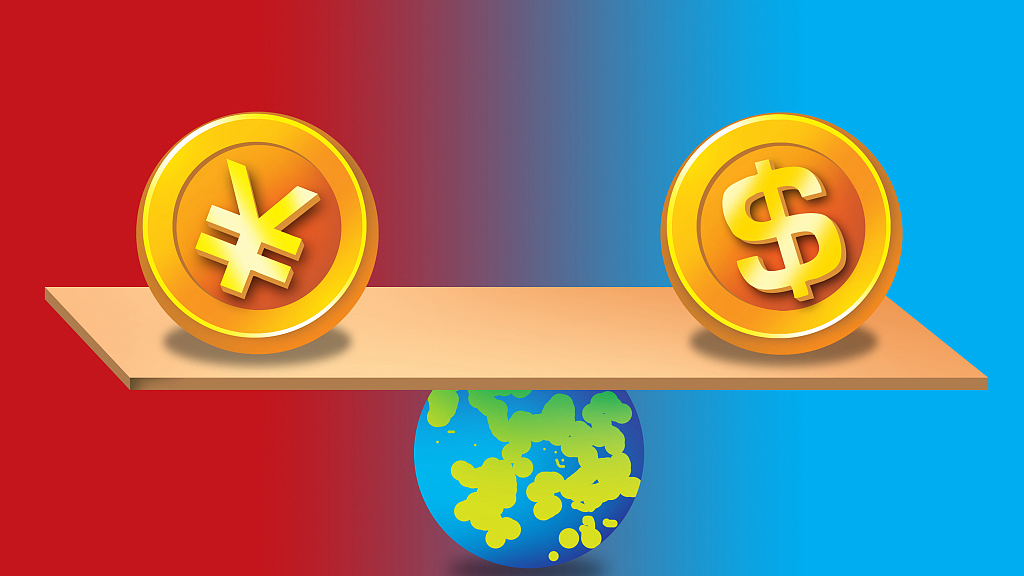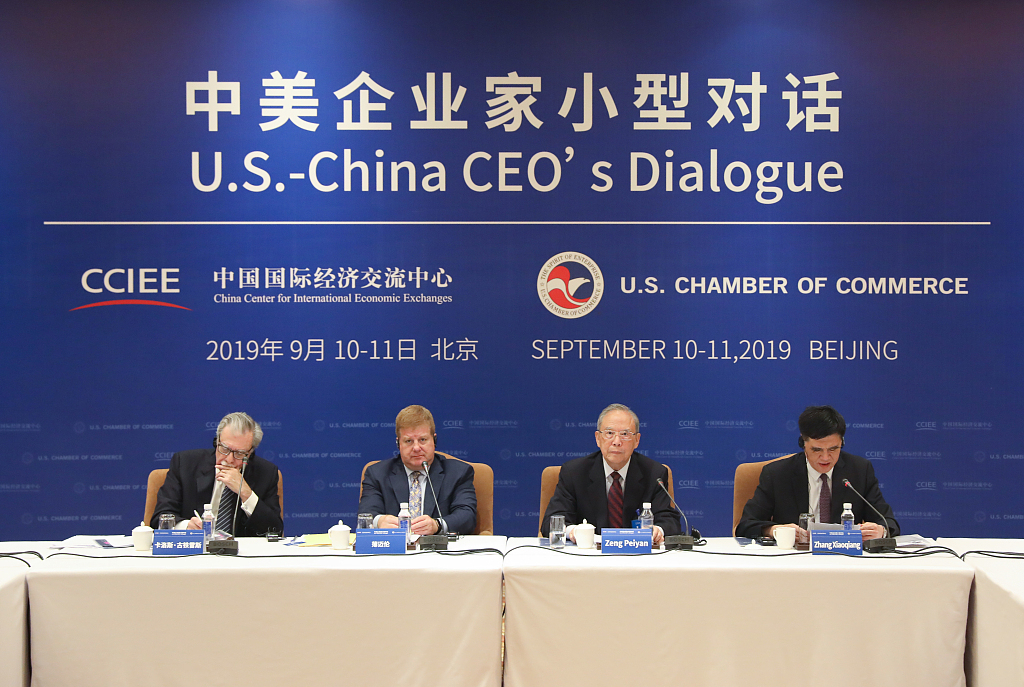

Editor's note: Dr. John Gong is a research fellow at Charhar Institute and professor at the University of International Business and Economics. The article reflects the author's opinions and not necessarily the views of CGTN.
China's Ministry of Finance on Wednesday issued two exemption lists of goods that have been subject to the two previous rounds of tariffs imposed on U.S. imports last year. The first list exempts 12 items in the 50 billion U.S. dollars' worth of goods taxed from July 6 of last year, and the other list exempts 4 items in the 16 billion U.S. dollars' worth of goods taxed from August 23 of last year. The more significant thing is China will offer refunds for the 12 items which have already been taxed.
The two lists include agricultural products, animal feeds, chemicals, medical products and oil and gas products. Looking at these items, it is clear that they are meant to help with Chinese importers that probably have a difficult time sourcing alternatives from other world markets. Certainly it also helps with American exporters who are having a tough time now. Take the shrimp and lobster in the first list as an example. The survival of the Maine lobster industry is currently hanging in the balance. By reducing the tariff burden, it certainly helps with the prospect of increasing exports in the China market, which will make many Maine families happy.
The exact value of these exemptions is not known, but I think they represent a fairly significant amount. The lists include several types of lubricants, including both mineral-based and synthetic, and the base oil that is used as a major component for making lubricants. America's lubricant industry is highly competitive, especially its synthetic lubricant technologies that are developed for high-end lubrication applications. To those much into auto racing, these venerable American brands must ring a bell: Amsoil, Royal Purple, Mobile-1, Red Line, and Lucas. These products sell quite well in China.
Base oil represents another global commodity market where American companies play an important role. Some of the world’s best refineries for Category 2 and above base oil production are situated along the Gulf coastal areas in Texas and Louisiana. This round of tariff exemptions should add some jobs and provide some economic impetus to these southern states.

The opening ceremony of the U.S.-China CEO's Dialogue, Beijing, China, Sept. 10, 2019. /VCG Photo
To be fair, it should be pointed out that the tariff exemption practice was first introduced by the Office of the United States Trade Representative (USTR). In the past rounds of tariffs imposed on Chinese exports to the U.S., every round contains some exemptions after a public hearing process. I have read some of the petitions made at these public hearings. For example, there have been many petitions from religious organizations in the U.S. to ask for exemption of printed bibles imported from China.
It is laudable to see that China is now doing the same, in consideration of the financial burdens on the related parties in China and the U.S. And Chinese government did it even more considerately by refunding some imposed tariffs so far.
This action also sends a conciliatory signal to Washington in light of the upcoming face-to-face ministerial-level trade negotiation that is scheduled to happen in early October which will be the 13th round. And we have been into the trade war for well over a year by this time. Now there might be some hope that both sides might come to an agreement. Maybe the end of the tunnel is much nearer than people think.
This has become cliché by now, but it is still worth repeating: Trade war is good for neither party. It is not easy to win a trade war; it is impossible to win a trade war, and no one ever in history has won a trade war. Hopefully Beijing's olive branch this time will be reciprocated by Washington at the negotiation table.
(If you want to contribute and have specific expertise, please contact us at opinions@cgtn.com.)

Copyright © 2018 CGTN. Beijing ICP prepared NO.16065310-3
Copyright © 2018 CGTN. Beijing ICP prepared NO.16065310-3